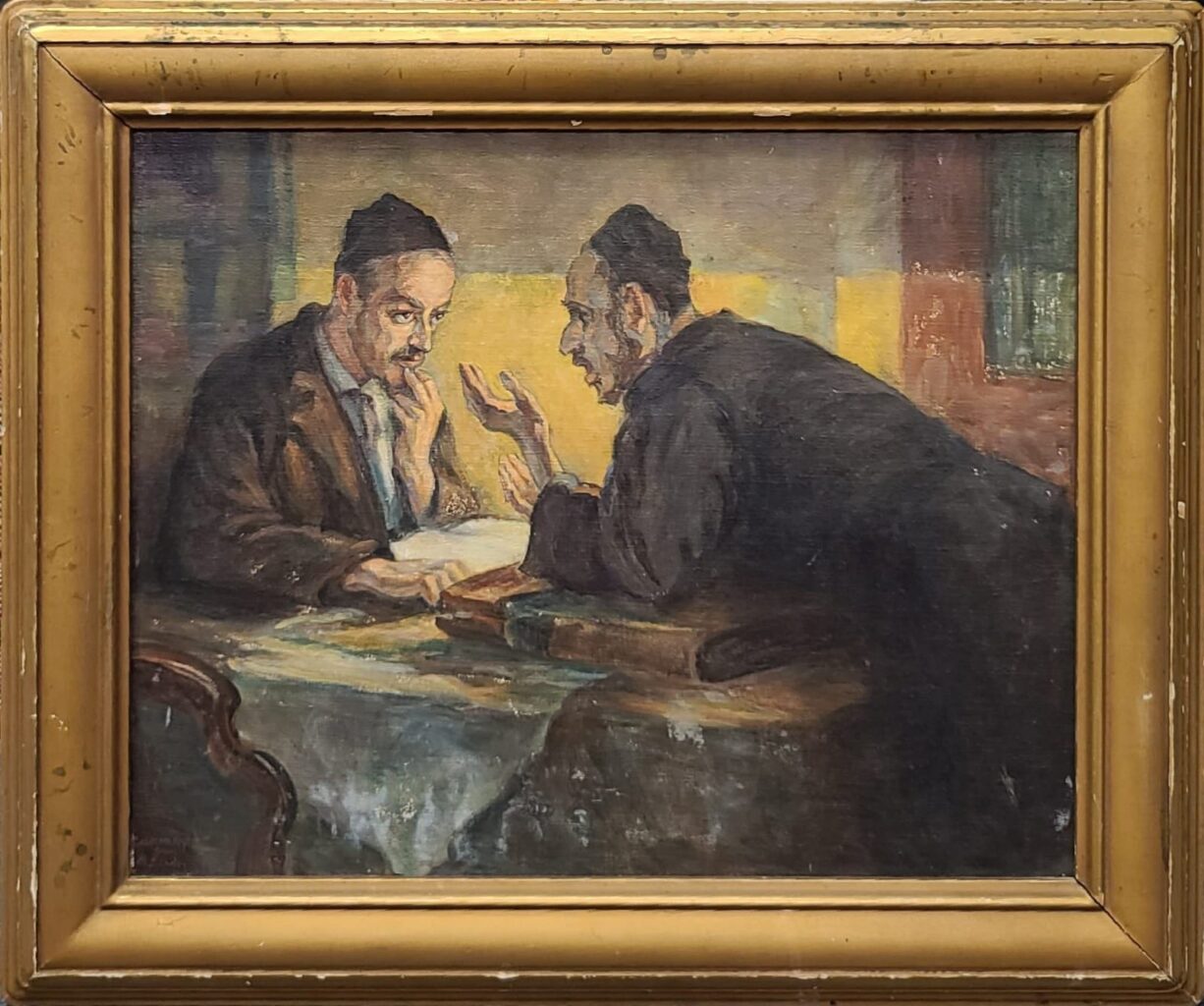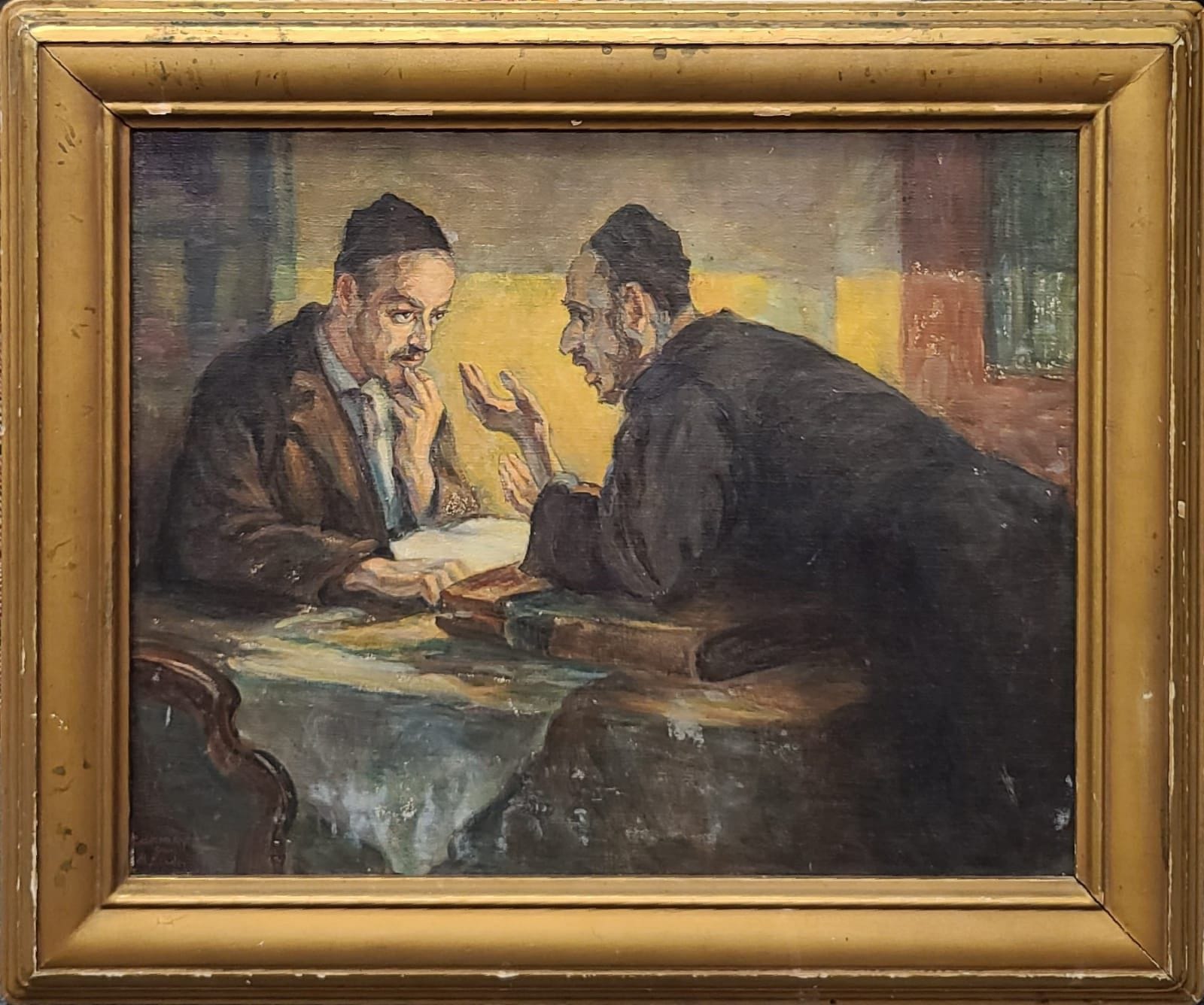
We Are Contemplations: Deleuze and Chavrusa-Style Learning
“When we say that habit is a contraction we are speaking not of instantaneous action which combines with another to form an element of repetition, but rather of the fusion of that repetition in the contemplating mind. A soul must be attributed to the heart, to the muscles, nerves and cells, but a contemplative soul whose entire function is to contract a habit. This is no mystical or barbarous hypothesis. On the contrary, habit here manifests its full generality: it concerns not only the sensory-motor habits that we have (psychologically), but also, before these, the primary habits that we are; the thousands of passive syntheses of which we are organically composed. It is simultaneously through contraction that we are habits, but through contemplation that we contract. We are contemplations, we are imaginations, we are generalities, claims and satisfactions.” —Gilles Deleuze
The above quote comes from Gilles Deleuze’s book, Difference and Repetition. I’ve been reading D&R with my Monday book group since March, and the group is wonderful for so many reasons, not least of which is the fact that we read the book out-loud to each other weekly and discuss as we go (no homework!). However, because we sometimes chit-chat and don’t start reading until a half hour into the meeting it occasionally feels like we’ve been habitually engaging the same parts of the book which, don’t get me wrong, is actually awesome for me since this type of habitual contemplation and contraction process (that Deleuze is describing above) is how I learn best!
Speaking of contemplation, learning, and book study groups, it has just recently occurred to me, after having listened to a recent episode of the Jewish Currents — On The Nose podcast, that the two weekly book groups that I’m engaged in significantly resemble a chavrusa-style learning group. For those who don’t know, a Chavrusa group is a traditional rabbinic approach to Talmudic study in which a small group of students (usually 2–5) analyze, discuss, and debate a shared text. From what I understand of chavrusa, it is much different than a hierarchical teacher-student style of learning. Instead, chavrusa-style learning requires that each person in the group become a student. Essentially, it is said, that the chavrusa process of reading and analyzing a text, organizing thoughts, explaining reasoning to partners, hearing out their partner’s reasoning, and questioning and sharpening each other’s ideas, often leads one to arrive at entirely new insights into the meaning of the text. And look, I must emphatically proclaim that this has been my experience in both of my book groups.
Long story short: I think Deleuze would approve of us reading his book this way! I say this because, imo, chavrusa-style learning exemplifies Deleuze’s theory by demonstrating how habits (intellectual and spiritual) are formed through active, contemplative synthesis. The interactive and repetitive nature of chavrusa learning leads to a deep, dynamic understanding, mirroring the way Deleuze sees habits as being formed through the fusion of repetition in the contemplating mind. Through this process, learners not only gain knowledge but also embody the contemplative synthesis that Deleuze describes, highlighting the profound connection between the two concepts.
May we all find that chavrusa group that allows us to form habits NOT just through repeated actions but also through a deeper contemplative process that involves both our psychological and organic being. Amen.
…
Painting above by Stanislaus Bender

0 Comments